Next year’s best Android phones from Samsung, LG, OnePlus and Google may be different, but they’ll have one thing in common — the Snapdragon 865 processor inside, which Qualcomm announced in early December at its third-annual Snapdragon Summit. While the Galaxy S11 is still months away, we already have an idea of some of the features we could see inside, including some of its camera capabilities.
As the world’s largest mobile chipmaker, Qualcomm’s top-tier processors run many of the most advanced phones on the planet. Many of a phone’s headline features come directly from the chip within, rather than from the manufacturer. The premium phones that use the Snapdragon 865 will have access to all the new features, but as always, it’s up to the phone-maker just how, and even if, a device will use all the chipset’s tools.
We’ll see top phones using the Snapdragon 865 as soon as the first quarter of 2020. Qualcomm also announced two more processors for mobile phones, the midtier Snapdragon 765 and 765G, a chip made specifically for gaming phones.
Here are six more things that phones with Snapdragon 865 can do, based on the demos we saw.
Read more: Best places to sell your used electronics
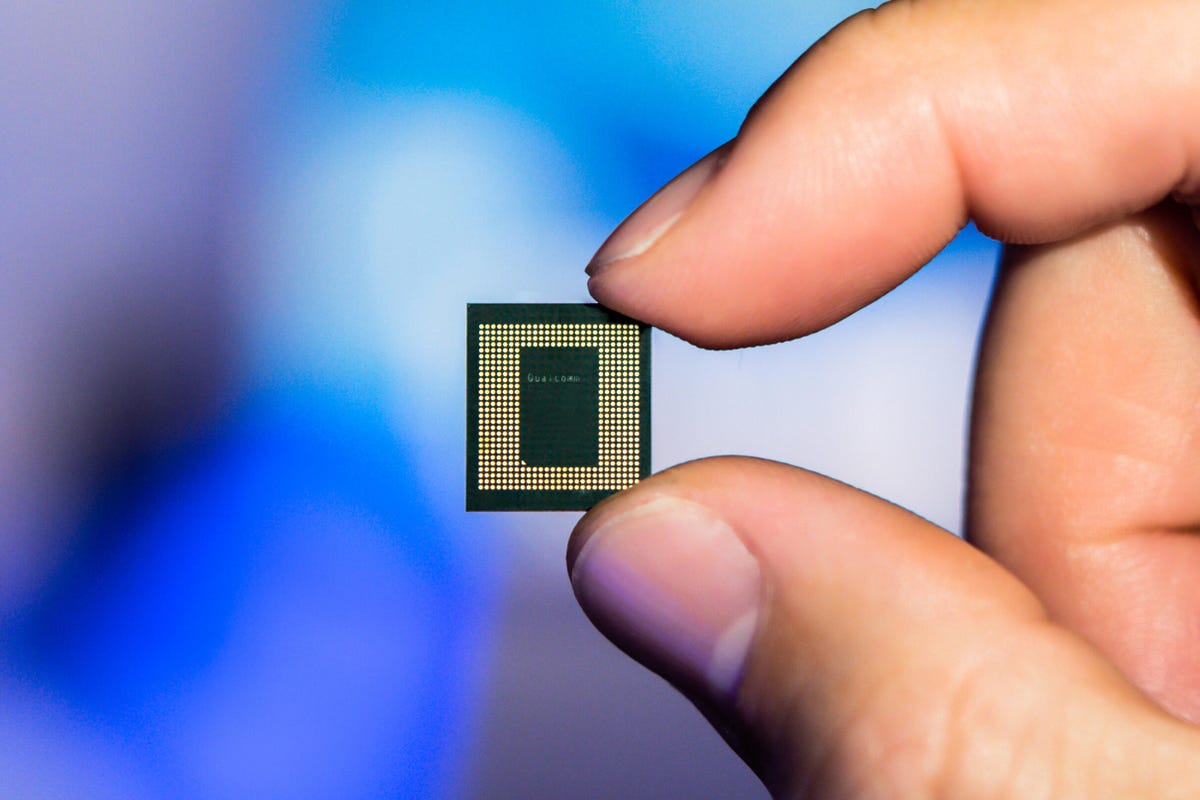

This little chip will power some of 2020’s most advanced phones.
Qualcomm
5G is baked right in
Unlike last year’s Snapdragon 855 that runs the Galaxy S10 and scores of other phones, the Snapdragon 865 will include 5G right from the start. In other words, any phone powered by 865 will also be 5G-ready — and that’s for both the fastest “mmWave” and longer-range “sub-6” flavors of 5G technology.
Faster download and upload speeds are set to become a must-have feature as 5G networks continue to expand in 2020. Notably, the 865 chipset still doesn’t have a 5G modem integrated right onto the silicone. Phone makers will still have to pair it with a separate Qualcomm X55 modem. For phone owners, the upshot of the combo is that handsets should be able to reach peak speeds of 7.5Gbps, which is faster than most home internet.
Blazing-fast speeds could open the door to new killer features and apps — or at least to daily conveniences like ultra-high quality streaming for videos and video calls. See what else 5G promises to do in the gallery below.
What 5G can do for you besides fast phone downloads


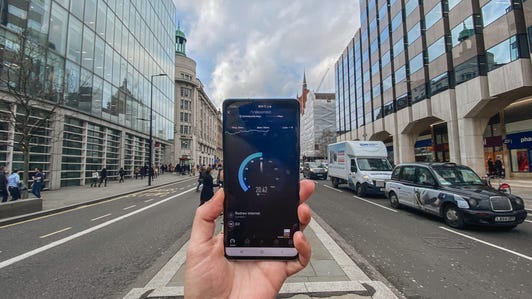

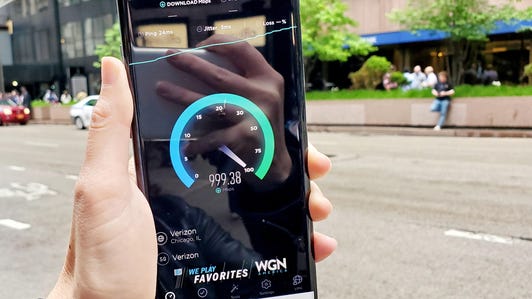

Camera and video improvements in Snapdragon 865 phones
What would you say to a 200-megapixel camera, or to camera processing so fast you can snap a 64-megapixel photo at the same time that you’re capturing 4K HDR video?
Snapdragon 865 comes with a new image processor, called Spectra 480, that it claims is insanely fast, but also extremely power-efficient. While the Galaxy S11 and others may not rush to employ a 200-megapixel camera (the S10 uses a 12-megapixel main camera), these future phones could wind up using 865’s capabilities in other ways.
On the technical side, Snapdragon 865’s new image processor operates at 2 gigapixels per second. That’s important for modern camera abilities like capturing video that’s both high resolution and super slow-motion, or running multiple cameras simultaneously so you can instantly switch between ultrawide, wide and telephoto cameras. Qualcomm says that this operating speed also saves power and helps keep the phone cooler when running intensive image-processing tasks.
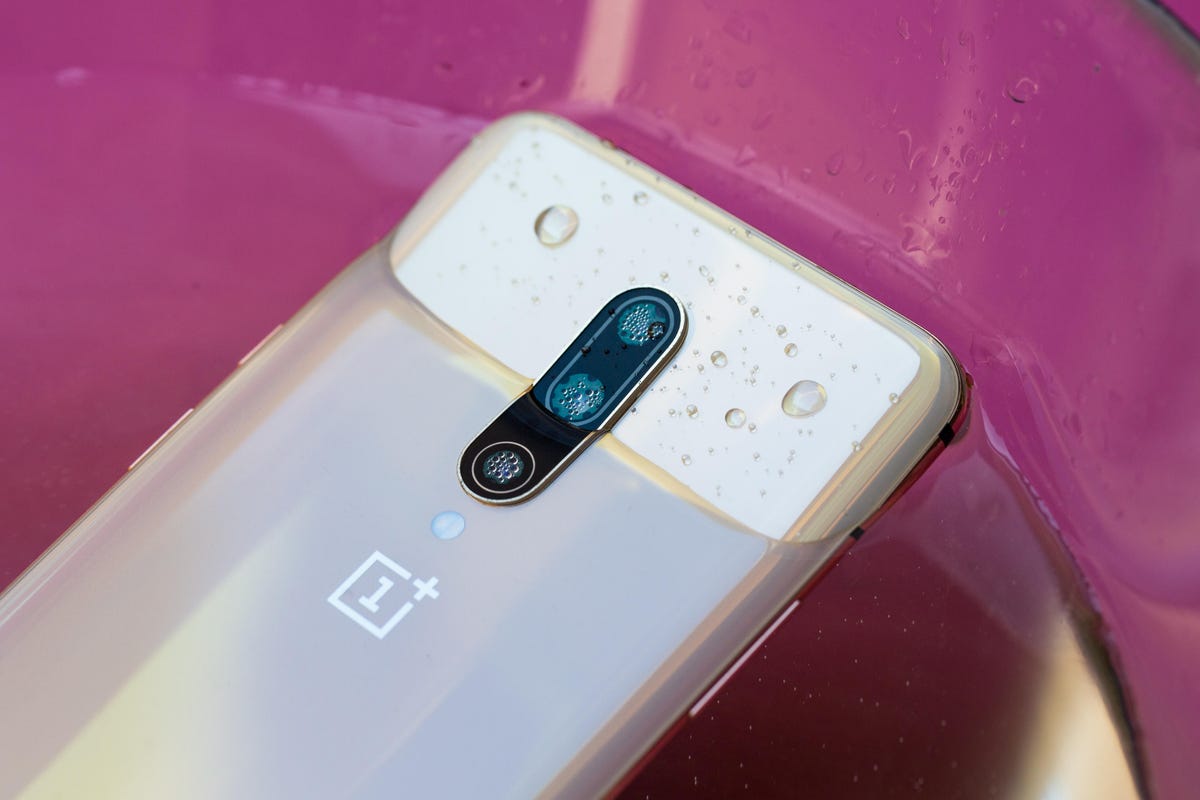

A 200-megapixel camera, anyone?
Angela Lang/CNET
A single frame of 8K video needs about 33 megapixels, so a camera that can process 2 gigapixels per second of image data in principle lets you shoot 8K video at 60fps — if your phone’s storage system and other hardware is up to the challenge. That data-processing prowess also could help more 2020 phones shoot long videos at super slow-motion rates of 960fps, about two to four times better than what you’ll see on most of today’s premium phones.
In addition, Snapdragon 865’s new camera engine is the first to capture with Dolby Vision HDR technology, for a better balance of bright highlights and dark shadows. It will also render over 1 billion colors.
More always-on everything
Your phone’s sensors already know if you’re moving or stationary and which way is north. They also can discern if the phone is in your pocket, and how bright to make the screen on an overcast day. For Qualcomm, that’s just the start.
Snapdragon 865 bundles in a new “sensing” hub that uses AI to help process sounds and voice streams, your location and Wi-Fi data streams — this has the effect of making always-on features like voice assistants and noise cancellation more effective, and easy on the battery reserves.
For example, your 2020 phone could hypothetically take advantage of apps and sensors that automatically launch driving mode and other tasks when it senses you’ve climbed into your car to start your commute home.
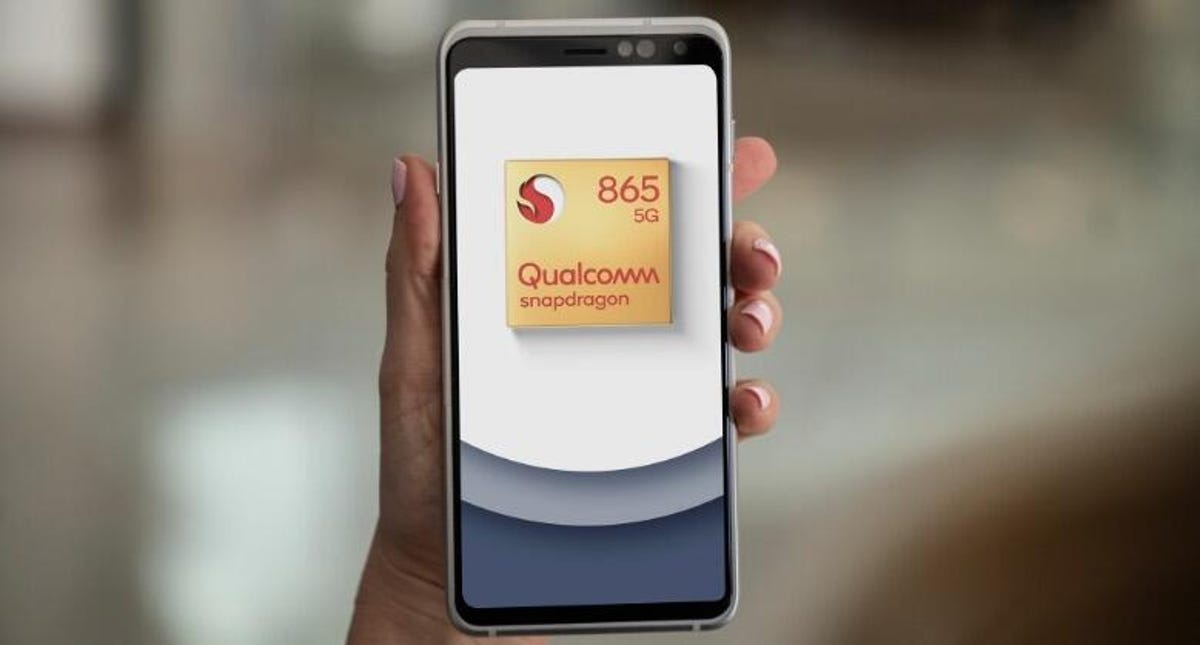

Qualcomm
Larger, faster, safer in-screen fingerprint reader
Last year’s Snapdragon 855 introduced a sonic in-screen fingerprint sensor that uses sound waves to unlock the phone. The accuracy and speed of unlocking phones this way have been hit and miss in CNET’s tests, and there are questions about security in the way it’s used on Samsung’s Galaxy S10.
With Snapdragon 865, Qualcomm tries again with the 3D Sonic Max, a larger in-screen fingerprint reader with enough space for you to scan two of your fingers. Qualcomm says the 3D Sonic Max’s target area is 17 times larger than the original.
Qualcomm claims that scanning two fingers will make the in-screen reader faster and more accurate, and also more secure, since there will be more biometric data to match to the scan. The 3D Sonic Max can also measure your heart rate.


Now playing:
Watch this:
Galaxy S11 is apparently going to be big. Very big
6:33
Snapdragon 865 revs up desktop-level gaming
Gaming is big business on phones, for casual and more serious gamers alike. Qualcomm even made a midrange gaming chip just for phones. But on its highest-end chipset, Qualcomm has stuffed several upgrades under-the-hood to make gaming on the phone more like gaming on the desktop.
One of the biggest is support for a 144Hz display refresh rate, which tops the current 120Hz and 90Hz that we see on phones today, like the Asus ROG Phone II and Google Pixel 4, respectively. A high refresh rate helps make graphics and scrolling smoother, both of which can boost the gaming experience.
Another enhancement is the Adreno 650 GPU itself, which is designed to deliver 20% faster graphics rendering and 35% more power efficiency than the current model.
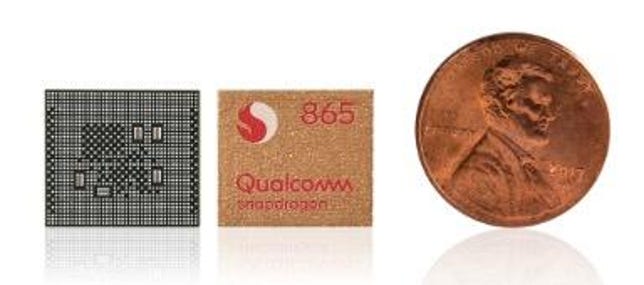

Qualcomm
You’ll also be able to download GPU drivers straight from the Google Play Store when phone makers supply them, which gives you more control over which drivers and settings you want and when you want them. Other enhancements tune color and lighting effects to help make games more realistic, especially when applied to games that don’t use HDR color built in.
Snapdragon 865 features
- 5G support for mmWave and sub-6 in both TDD and FDD frequencies.
- Wi-Fi 6 certified.
- QuickCharge support for fast battery charging.
- Fast Connect.
- Bluetooth 5.1.
- Hexagon 698 with Tensor accelerator.
- AI engine: LPDDR5 and LPDDR4 memory control.
- Adreno 650 GPU with 20% faster graphics rendering and 35% more power efficiency.
- Kryo 585 octa-core architecture with 2.84GHz prime speed.
- Qualcomm Sensing Hub with gyroscope, accelerator, audio, location, Wi-Fi and voice data streams and always-on functionality.
- Elite gaming, with compatibility with Unreal 4 engine.
CNET senior reporter Stephen Shankland contributed to this article.
Originally published earlier this month.



